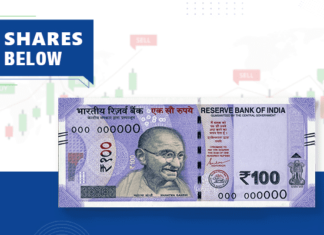A mutual fund or exchange-traded fund that attempts to match the returns of a market index is known as an “index fund.” Index funds may strive to track market indexes such as the S&P 500 Index, BSE Sensex Index, and the Nifty 50 Index, to name a few.
A market index tracks the performance of a “basket” of securities (such as stocks or bonds) that is designed to reflect a stock market or economy sector. You can’t invest directly in a market index, but you can invest indirectly through index funds, which track a market index.
To monitor a market index, index funds can use a variety of approaches: some invest in all of the securities included in the index, while others invest in simply a sample of the securities included in the index.
The market capitalization of a corporation is frequently used by market indexes to determine how much weight that securities will have in the index. The total worth of a company’s shares is measured by market capitalization (or “market cap”). The total value is calculated by multiplying the share price by the number of outstanding shares. Securities having a higher market capitalization value account for a larger percentage of the index’s overall value in a market-cap-weighted index like in the case of Nifty 50, and Bank Nifty in India. Some market indices are “price-weighted,” such as the Dow Jones Industrial Average.
How do index funds Invest?
Index funds have traditionally invested in a passive rather than active manner. This implies they want to optimize long-term gains by not purchasing and selling shares often. An actively managed fund, on the other hand, makes more frequent acquisitions and sells in order to beat the market (which is generally measured by some type of index).
What are the expenses that come with index funds?
Index funds may be able to save money since they employ a passive investment style. Index fund managers, for example, do not actively pick stocks and hence do not require the services of research analysts and others who assist in the selection of securities. This decrease in fund management costs might result in lower total costs for shareholders. Keep in mind, however, that not all index funds are less expensive than actively managed funds. Before investing in any fund, be sure you understand the true cost.
What are some of the Risks associated with index funds?
Index funds, like any other investment, carry some risk. An index fund will be exposed to the same risks as the securities that make up the index it monitors. Other risks to which the fund may be exposed include:
Inflexibility: When it comes to reacting to price decreases in the securities in the index, an index fund may have less flexibility than a non-index fund.
Tracking Error: It’s possible that an index fund won’t exactly match its benchmark. For example, a fund may only invest in a subset of the securities in a market index, in which case its performance is less likely to mirror that of the index.
Underperformance: Fees and expenditures, trading charges, and tracking mistakes might lead an index fund to underperform its benchmark.
Benefits of Index Fund
One of the main reasons is that, because they are passively managed, they have substantially lower management costs than other funds. The index fund’s portfolio simply replicates that of its specified index, rather than having a manager actively trading and a research staff researching stocks and making recommendations.
Many actively-managed large-cap plans have suffered in recent years, but their passively-managed rivals have outperformed them. Mutual fund managers and advisors, on the other hand, point out that the result is due to the stock market’s limited rally. Many investment professionals, however, predict that active funds will struggle to outperform their benchmark in the future years.
Several actively managed funds, particularly in the multi-cap, mid-cap, and small-cap divisions, continue to outperform their benchmark by a substantial margin, according to these advisers. Many funds, they feel, will be able to produce alpha or outperform their benchmark in India for at least a decade. They claim that this has nothing to do with fund managers’ magical abilities, but rather with the nature of a growing market like India, where multiple under-researched and relatively unknown stocks are identified every year.
As you can see, one thing is clear: passive funds will soon overtake active funds as the preferred vehicle for typical investors.
Demerits of Index Investing
Index funds, like any other investment, aren’t perfect. One disadvantage is inherent in their design: a portfolio that rises with its index falls with it. If you invest in a fund that tracks the Nifty 50, for example, you’ll benefit from the highs when the market is performing well, but you’ll be entirely exposed when the market falls. In contrast, if an actively managed fund detects a market downturn, the fund manager may alter or even liquidate the portfolio’s positions to mitigate the impact.
It’s easy to get worked up about the fees charged by actively managed funds. However, a smart investment manager’s competence may sometimes not just preserve a portfolio, but even outperform the market. Few managers, however, have been able to do it year after year.
Diversification may sometimes be a double-edged sword. Sure, it reduces risk and straightens out volatility; however, as is frequently the case, limiting the downside also restricts the upside. When compared to a fresher portfolio in another fund, an index fund’s broad-based basket of equities may be weighed down by certain underperformers.
There are some appealing advantages to index funds, but there are also some disadvantages to consider. Before you invest, learn what an index fund is and isn’t. It is without a doubt one of the better options for a beginner to invest in.





